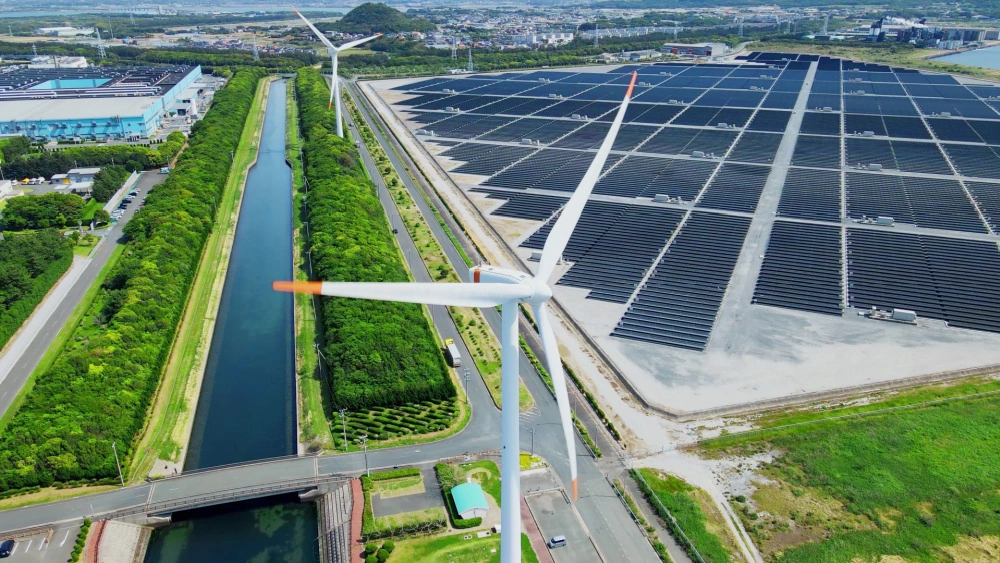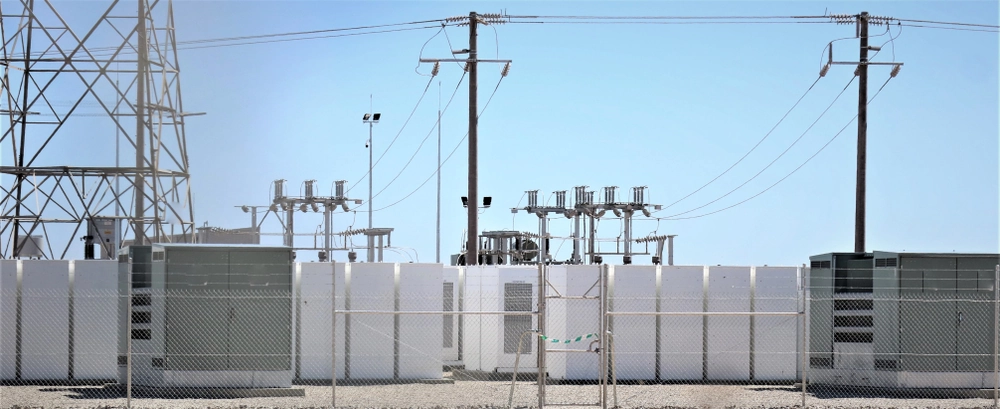
Key considerations for Battery Energy Storage System Supply Agreements


As we explained in a previous article, developers of BESS projects are increasingly using a multi-contractor, split-scope contracting structure instead of the more traditional single EPC contractor approach. In this context, a developer will often seek to enter into a supply agreement for the Battery Energy Storage System ("BESS"), which will then be supplied to the civil works contractor for installation and commissioning. The electrical works may be undertaken by the same or a different contractor, depending on the parties' risk appetite and experience.
What to consider when negotiating a BESS supply contract?
Framework agreement or standalone supply contract?
For some projects, a standalone BESS supply contract is the most appropriate contracting strategy. However, for developers who are developing multiple projects, whether simultaneously or sequentially, it can help to negotiate and agree on a framework agreement with a supplier (who may or may not be the BESS manufacturer) under which individual orders are placed.
This form of contracting structure will have general terms that apply in respect of all call-off orders and more bespoke terms that apply to specific projects, which are included in the call-off orders. This structure helps minimise the risk of having to reopen negotiations for each project and allows for a faster order process. It is not unusual for developers to negotiate framework agreements with several potential suppliers, allowing them to decide later how many orders to place with each. This approach saves time, as the later negotiation of call-off orders is intended to focus on price and project specific requirements rather than legal boilerplate, although this is not always the case.
It is not uncommon for a framework agreement to be entered into by a company within the developer’s group with individual call-off orders being placed by separate special-purpose vehicles that hold the rights to a particular project. The framework agreement should be drafted in a manner as to allow for this.
The framework agreement should allow for free assignment of both the framework agreement and call-off orders to allow the developer to restructure, finance and sell projects later.
A developer should consider whether a supplier default under one call-off contract should be considered a cross default of all other call-off contracts. For a developer, a material breach by a supplier under one call-off contract may be a sign of underlying issues with the supplier and a reason to end the relationship. While a full-scale termination may seem drastic for a developer, a cross-default provision gives the developer leverage to ensure smaller orders are not dropped or de-prioritized by the supplier after an increase in costs of raw materials, components or shipping. This helps ensure a supplier maintains a “whole relationship” approach to project delivery.
Developers should expect suppliers to request a quid pro quo cross-default termination right in favour of the supplier in instances where there is a developer default under a particular call-off contract. While some developers may be willing to accept this, given that their primary obligation is merely to pay the contract price, it is important to consider any financing of projects that might occur. Lenders are typically reluctant to accept such provisions in a standalone project financing. For portfolio financing this may be acceptable where the framework agreement and all projects for which call-off orders were placed are covered under portfolio financing.
Where the supplier is also the BESS manufacturer, the product warranties provided are key. For BESS projects, battery cell degradation is inevitable, but a comprehensive product warranty helps ensure that this can be modelled by the developer as part of their return on investment calculation and be priced for. A BESS warranty should include performance testing as part of the commissioning process. It should typically include:
- a capacity guarantee,
- a round-trip efficiency guarantee and
- an availability guarantee.
Depending on the type of project and the business model it supports, there may be other guarantees as well, such as for response time, for ramp rate, settling time and for signal-following accuracy.
It is usual for warranty testing to be performed as part of annual maintenance, but developers often also ask for the flexibility to require interim testing as necessary to troubleshoot the system. It is a negotiated point whether the developer or supplier is responsible for the performance of the annual warranty testing, generally dependent on whether the supplier is also providing services under a long-term services agreement (LTSA). In our experience suppliers are reluctant to provide a BESS warranty without an LTSA, as it is through the LTSA that a supplier will be able to discharge the obligations associated with the provision of the BESS warranty.
The supplier’s primary obligation for failure to meet any warranted performance thresholds should be a make-whole payment or an obligation to repair or replace the equipment so that it performs as guaranteed. Developers can also try to negotiate a liquidated damages amount for underperformance or downtime. Liquidated damages may be tied to the commissioning completion milestone to help offset costs incurred by the developer under its construction or grid balancing agreements due to a delay in completing the project.
Many suppliers try to include the BESS warranty terms in a separate document (i.e. outside of the main supply agreement). It is also not uncommon for the supplier to be a different entity to the entity that will provide services in connection with the BESS under an LTSA.
Both approaches are problematic for different reasons. A separate warranty may include a different choice of law, assignment or dispute resolution provisions from, or otherwise have conflicting terms compared to, the supply agreement, which can cause material issues with respect to enforcement of rights or when trying to finance the project.
The entity providing the services will need to have regard to the terms of the warranty provided by the supplier to be able to perform the services in a manner that does not invalidate the warranty. The developer risks getting caught in the middle between the supplier and the service provider, with one entity blaming the other for issues with the BESS and the developer being unable to resolve the matter in an efficient manner.
Where warranties are included in the LTSA (as opposed to the supply agreement), these may come under the agreed LTSA liability caps, which may be lower than the actual purchase price of the BESS equipment (which is more likely to be the case if the warranty is included as part of the supply contract). Putting the warranty in the LTSA also ties the existence of the warranty to the use of a single service provider (often being an affiliate of the BESS supplier). In the event the supplier fails to provide an appropriate level of service under the LTSA, a developer may be forced to choose between maintaining its warranty and continuing to accept substandard service performance or forfeiting the warranty.
The ‘life’ of a warranty will most likely start at the earlier of delivery to site or a number of months after the BESS was manufactured. This could become problematic where the BESS is delivered on site but is not commissioned for a significant period of time for reasons that are not attributable to the developer (for instance, due to delays faced by a contractor). Developers should carefully consider the ‘start date’ of each warranty offered by a supplier and should try to negotiate a start date that is a number of months after delivery (to allow for unforeseen circumstances).
Exclusion events: A commonly-included, but under-negotiated, provision of any warranty is the exclusion events where the warranty does not apply. Exclusion events include failure to comply with supplier recommendations or documentation, including any updates issued after the date of purchase.
Suppliers also commonly attempt to limit the warranty to the performance of operations and maintenance services by a supplier affiliate. This can handcuff the warranty to continued use of a specific provider. It is better to have the warranty continue after a change in operator as long as the developer complies with the operations and maintenance manuals provided by the supplier. It is fair for suppliers to exclude any damage caused by a developer’s improper installation or operation of the equipment. However, a developer should ensure that these provisions do not overly limit the developer’s ability to transfer the equipment without permission from the supplier although it should be recognised that some restrictions (given that the BESS is likely to have been sized for a specific use and location) are likely. The developer should negotiate to ensure the agreement works for its use case and allows flexibility to operate, maintain and finance the project.
Some suppliers may attempt to structure supply agreements so that, following delivery and a short inspection period, any defects in the BESS equipment will be considered automatically to have triggered a warranty claim.
Developers should consider tying a sizable milestone payment to commissioning completion and requiring that any defects found before or during commissioning are remedied expediently. This formulation motivates suppliers to test BESS equipment at the factory prior to shipment and to address any issues before shipping.
The developer should retain flexibility to adjust the delivery schedule for the procured equipment. Many supply agreements are signed more than a year in advance of anticipated delivery. In the interim period, unforeseen issues may arise that require a developer to push back the delivery date or to reallocate equipment to other projects. It is best to negotiate an adjustment mechanism up front. This may include a grace period for storage at the supplier’s factory prior to shipment or storage at the port of entry without a price adjustment. Some developers offer to cover costs and expenses to use the supplier’s third-party storage after the grace period has run. Developers should ensure that risk of loss and the warranty start date are not affected by the delay in delivery,but should be prepared to negotiate on battery degradation in instances of an extended period of storage.
Suppliers pay a lot more attention to the force majeure provisions of a supply contract now than they used to, to ensure they are afforded relief for delays in shipping, including port congestion or closure. A developer may placate suppliers by offering limited force majeure relief for unforeseeable events that occur after signing the supply contract and directly impact the supplier’s ability to perform, subject always to a supplier obligation to mitigate such impacts. This might include relief in certain limited circumstances for port closures or other shipment delays that meet the broad definition of force majeure (events outside the control of both parties that occur after the purchase order is placed). Offering more limited relief in an initial draft may be the best way for a developer to streamline negotiation and avoid overreaching by the supplier.
Suppliers usually ask for price and schedule relief in the event a developer acts in a manner that directly interferes with the performance of the supplier’s obligations under the contract. However, developers should insist on certain carveouts. A supplier should not be granted relief for routine coordination with the developer’s other contractors, including construction contractors and engineering specialists. Interfacing during the design, delivery and commissioning of the project should be priced into the purchase price for the BESS equipment, and developers should avoid language permitting a contract variation for any impact caused by the developer or its other contractors. Even where a variation is otherwise permitted, a supplier should not be entitled to price or schedule relief if the supplier’s actions contribute concurrently to the delay.
Concluding remarks
Irrespective of the approach chosen (framework agreement or alone-standing agreements), the negotiation of a BESS supply contract raises a number of legal and technical issues, which intersect and require legal and technical advisors to work seamlessly to ensure that a balanced position is achieved.
Our team has extensive experience in advising on the issues identified above and the proposed solutions. If you would like to discuss a particular project or the terms of any agreement that you are currently negotiating or wish to negotiate, please do get in touch with our experts.









